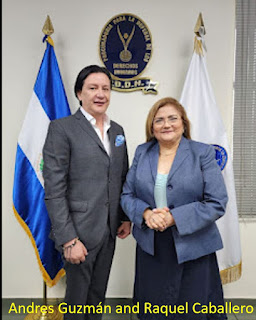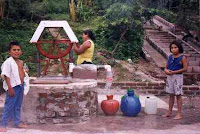The apologists

Since March 2022, the government of El Salvador reports it has captured more than 72,600 persons under the State of Exception, bringing the total number of persons imprisoned to more than 100,000 in this country of 6.3 million people. Respected human rights organizations have denounced thousands of cases of arbitrary detentions, and have compiled reports of abuse and torture in the country's grossly overcrowded prisons. The government of Nayib Bukele has two officials whose nominal responsibilities are to report on and highlight human rights issues within the country, including in its prisons. The first is the Procuradora para la Defensa de los Derechos Humanos or "PDDH". Into English, this is usually translated as Human Rights Ombudsman, and this is an office enshrined in the Salvadoran constitution after the 1992 Peace Accords. The second is a new post in the Bukele administration called the "Commissioner for Human Rights." The officials fill...







